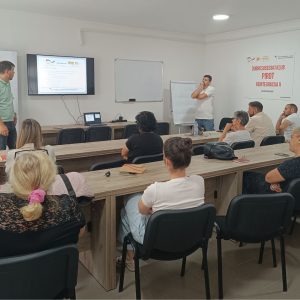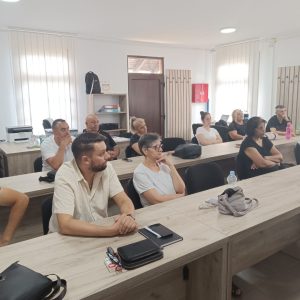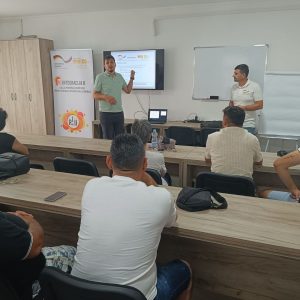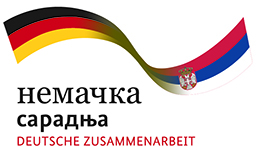The business training conducted as part of the Reintegrate II project plays a crucial role in equipping participants for the job market and entrepreneurship.
In August, training sessions were held in Pirot for:
- 13 beneficiaries in the self-employment component
- 9 beneficiaries in the unemployed component for employment with known employers
- 13 beneficiaries in the requalification and additional qualification component
These training sessions provide participants with practical knowledge and skills that are directly applicable to business and employment. In the self-employment component, beneficiaries who successfully develop and present their business plans will receive grants to start their own businesses. This enables them to immediately apply their acquired knowledge in practice, paving the way for sustainable business growth.
Additionally, unemployed beneficiaries will have the opportunity to secure employment with reputable employers with whom the project has established partnerships. These employers recognize the value of the training and are willing to hire candidates who have completed the program, thereby increasing the chances of long-term employment.



Business training enables participants to acquire:
-
Practical entrepreneurship skills: Beneficiaries learn how to start and manage their own businesses, which is especially important for self-employment. Mastering the basics of business planning, financial management, and marketing allows them to better leverage business opportunities and reduce the risk of failure.
-
Digital competencies: In the digital age, skills such as computer usage, online marketing, and e-commerce are becoming increasingly important. Training participants gain this knowledge to utilize modern tools and technologies to enhance their business ideas.
-
Networking and connections: The training also enables participants to connect with other entrepreneurs, mentors, and potential partners. Networking can be a key factor in business development and finding new opportunities in the local market.
-
Confidence and motivation: Beyond technical knowledge, the training helps participants build confidence and motivation to enter the job market or start their own businesses. This is particularly important for returnees and vulnerable groups who face numerous challenges.
-
Increased competitiveness in the job market: The acquired knowledge and skills make participants more competitive in the job market, increasing their chances of employment. Employers are more likely to hire candidates who already possess relevant knowledge and skills.
In this way, business training not only empowers beneficiaries through education but also provides them with concrete opportunities to start their own businesses or secure employment with reliable employers. These measures significantly contribute to the economic development of local communities and the improvement of the living standards of returnee and vulnerable populations.


